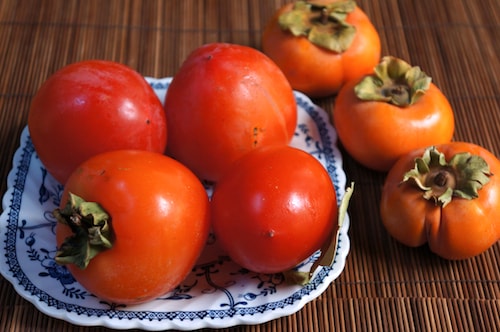4 things to note when eating persimmons to avoid affecting your health
Tannin in persimmon peel will form stones in the stomach if ingested for a long time, so you should peel off the peel when eating.
Sweet and easy to eat, high in nutrients, persimmon is one of the indispensable fruits in every family's menu in the fall. In Vietnam, there are two types of persimmon: red-skinned persimmon and orange-skinned persimmon (pickled persimmon).
Scientists have shown that persimmons are rich in glucose, protein, fructose, vitamin C, citrulline, iodine, calcium, phosphorus, and iron. The amount of vitamins in persimmons is twice as high as in other fruits such as apples. In addition, persimmon leaves can also be used as medicine, helping to lower high blood pressure and prevent cardiovascular disease.
|
Image:CG. |
However, besides the above benefits, you need to pay attention to the following things when eating persimmons, according toPeople:
1. Do not eat persimmons when hungry
Persimmons contain a lot of tannin and pectin. If you eat persimmons on an empty stomach, these two substances will form insoluble precipitates under the influence of stomach acid. When they cannot go down to the small intestine through the pylorus, the precipitates easily remain and form stomach stones.
If not excreted naturally, stomach stones can cause digestive tract obstruction, causing symptoms such as upper abdominal cramps and vomiting.
2. Do not eat persimmon peel
The peel is the part that concentrates most of the tannin of the persimmon. If you eat the peel or don't peel it thoroughly, the tannin will enter your body and over time form stones in your stomach.
3. Don't eat too much
Eating too many persimmons creates compounds that are difficult to absorb, causing the body to lack minerals. In addition, persimmons quickly make you feel full, affecting your appetite. It is best not to eat more than 200g each time you eat persimmons.
4. Some cases limit eating persimmons
Persimmons are cold in nature, so people with stomach problems, diarrhea, postpartum anemia, and colds should not eat too much. The sugar content in persimmons affects the treatment of diabetes and chronic stomach diseases. Tannin in persimmons can hinder the body's absorption of iron, making them unsuitable for people being treated for anemia.



